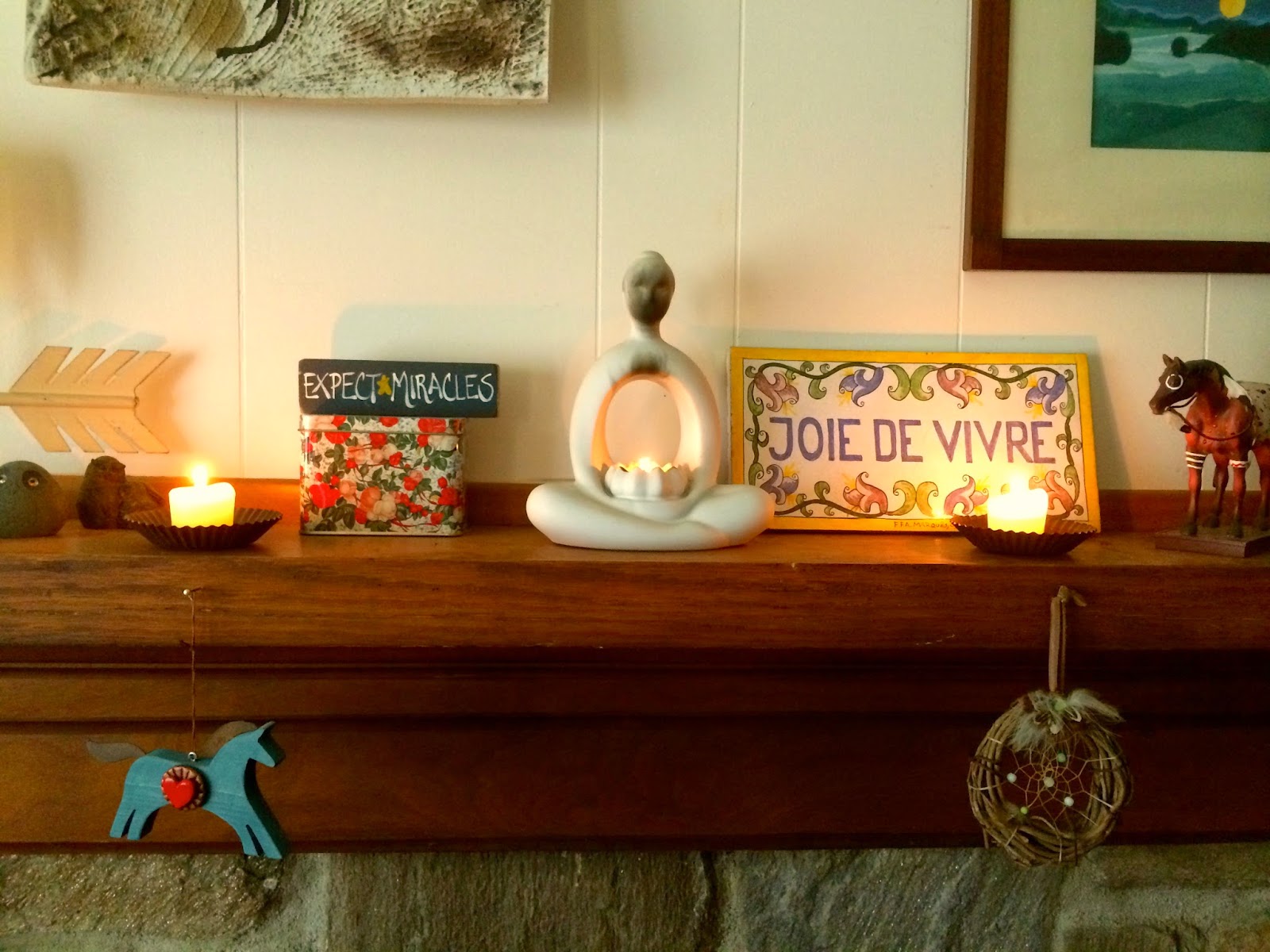I woke up this morning and felt a
heaviness like a big boulder sitting on my chest. It ws the weight of suffering in
the world, the sadness of all the things that are affecting people I love,
people who are not feeling good, people whom I don’t even know that are in
situations worse than anything I’ve ever experienced. I had a hard time even pouring myself a cup
of coffee, feeling all that helplessness.
“May you be free from suffering”, I
thought as I noticed the morning sunlight dappling the trees and the pasture. That’s part of a tonglen meditation I learned
years ago. It’s a Buddhist practice that
evokes maîtri or lovingkindness. Pema
Chodron says, “ Maitri also has the meaning of trusting oneself – trusting that
we have what it takes to know ourselves thoroughly and completely without
feeling hopeless, without turning against ourselves because of what we see.”
The basic idea is that you breathe in
the discomfort and the pain and breathe out the love, ease, and relief
that you wish for. First, you offer it to yourself, saying something like , “May I live in safety. May I be happy. May
I be healthy. May I live with ease." Then, you think of someone that you
want to help, and you repeat the
thoughts, substituting “May you live in safety…” Finally, you extend
that to all beings in the world, “ May we all live in safety…”
The words
can be changed and adapted so that they feel right and personal for you. “May I feel this completely so that I and all
other beings may be free of pain.” “May I send out this contentment completely
so that all beings may feel relaxed and at home with themselves and with the
world.” “May both of us be able to feel feelings like this without it causing
us to shut down to others.” Pema Chodron suggests that we open up the
meditation to speak for ourselves in whatever words feel best for our own
situation. “The
isolation, personal burden, loneliness, and desperation of pain gets very
strong. And you think you're the only one. I've had people actually say to me,
"I think no one else in the world feels this kind of pain." And then
I can say to them with tremendous confidence: "You're wrong."
“The most
dramatic and probably most difficult step is to say: "Since I'm feeling
this anyway, may I be feeling it so all others could be free of it." So
tonglen meditation has three levels of courage. The first is to say,
"Other people feel this." And that is enough. But if, in that
particular moment of time, it feels genuine to say, "May this become a
path for awakening the hearts of all of us," do so. And the one that takes
you to the deepest level of courage is: "Since I'm feeling this anyway,
may I feel it so that others could be free of it." Wise words from a wise woman.
So I’m
going to try to do this right now. Maybe you’d like to join me?




